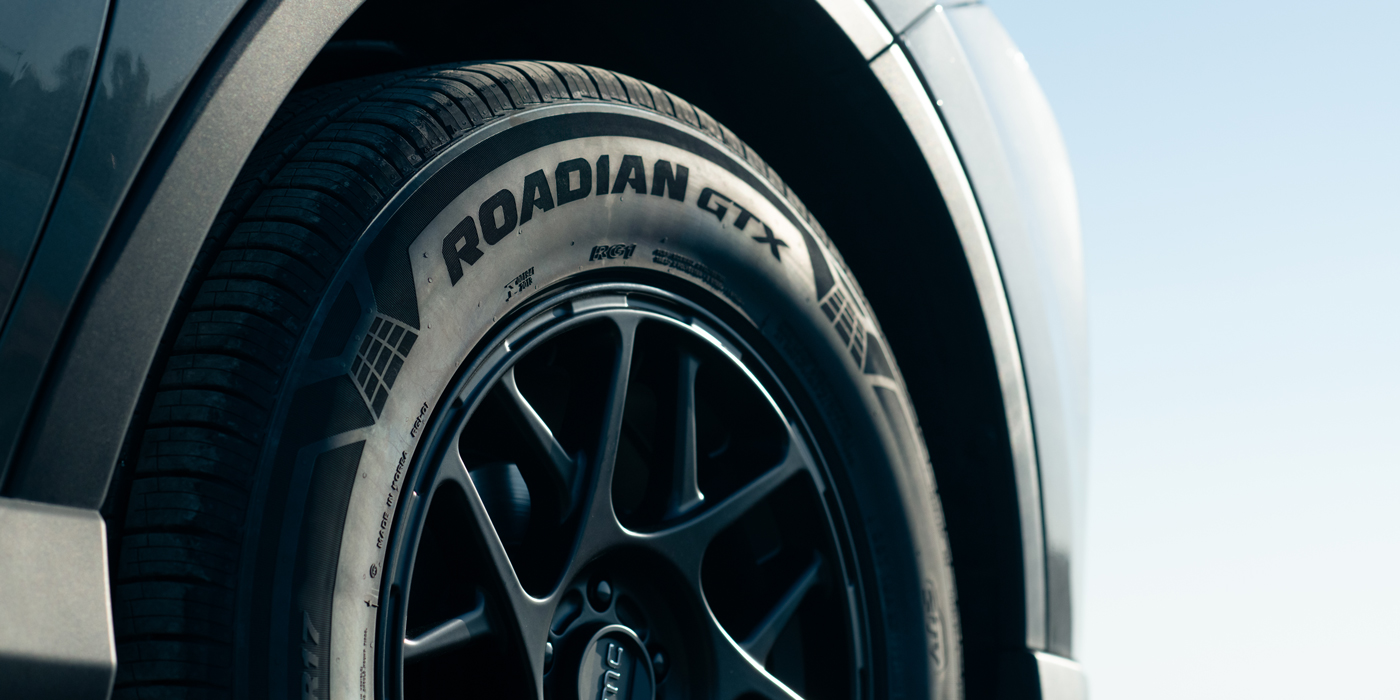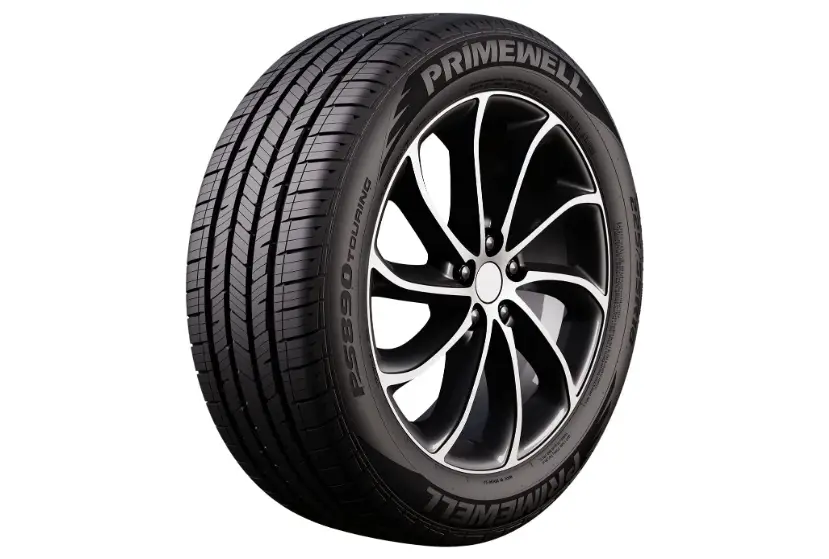A touring tire is designed for long-distance driving and provides a balance of comfort and performance. It offers durability and stability on various road conditions.
Touring tires are designed with a focus on comfort, longevity, and balanced performance, making them a popular choice for drivers who spend a lot of time on the road. Whether you’re commuting daily, taking weekend road trips, or embarking on long-distance journeys, touring tires offer an excellent blend of features to enhance your driving experience.
This detailed guide will cover everything you need to know about touring tires, including their features, benefits, types, and how they compare to other tire categories.

Credit: www.tirereview.com
Contents
What is a Touring Tire?
A touring tire is a type of tire designed primarily for on-road use, offering a smooth, quiet ride with enhanced stability and comfort over long distances. These tires are typically used on sedans, SUVs, crossovers, and other passenger vehicles that prioritize comfort and fuel efficiency over high-speed performance or off-road capabilities.
The key characteristics that define touring tires include:
- Comfort-Oriented Design: Touring tires are engineered to provide a smooth, quiet ride, minimizing road noise and vibrations. They often feature special tread patterns that absorb shocks from uneven road surfaces, improving the overall comfort of the ride.
- Long Tread Life: One of the primary advantages of touring tires is their durability. They are designed to last for tens of thousands of miles, often outlasting other types of tires. The tread compounds used in touring tires are optimized for longevity, making them a cost-effective choice for drivers who cover a lot of miles.
- All-Season Capability: Most touring tires are all-season tires, meaning they can handle a variety of weather conditions, including dry, wet, and light winter driving. They offer moderate traction in rain and snow, though they are not designed for severe winter conditions like dedicated winter tires.
- Balanced Performance: Touring tires aim to provide balanced handling and traction, offering good performance in terms of braking, cornering, and acceleration, though they are not as performance-oriented as sports tires or ultra-high-performance tires.
Key Features of Touring Tires
To better understand why touring tires are ideal for long-distance driving, let’s break down some of the essential features that set them apart from other types of tires.
1. Tread Design and Pattern
The tread design on touring tires is optimized for reducing road noise and improving ride comfort. They typically have symmetrical or asymmetrical tread patterns that promote even wear and enhance traction on wet and dry surfaces. Additionally, the treads feature wide circumferential grooves and smaller sipes to evacuate water, reducing the risk of hydroplaning during rainy conditions.
2. Comfort and Noise Reduction
One of the primary goals of a touring tire is to minimize road noise and vibrations. The tread compounds are often softer, and the design includes noise-canceling features like variable tread block patterns. These elements work together to ensure a quieter, more serene driving experience, particularly on highways or long road trips.
3. Durability and Tread Life
Touring tires are built with durability in mind. The rubber compounds used in the tire are more resistant to wear, and the tread is designed to wear evenly over time. This gives touring tires a longer lifespan, with many models offering treadwear warranties of 60,000 to 80,000 miles or more. Their construction also helps reduce rolling resistance, improving fuel efficiency.
4. All-Season Versatility
Touring tires are often marketed as all-season tires, capable of providing reliable traction in a variety of weather conditions. The all-season classification means that these tires perform well in both hot and cold climates and can handle light snow and rain. However, it’s important to note that while they can manage mild winter conditions, they may not offer the same level of performance as dedicated winter tires in extreme snow or icy situations.
5. Handling and Stability
Touring tires are designed to offer precise and stable handling, particularly on highways and paved roads. The sidewalls of touring tires are usually reinforced to provide better cornering stability, while the tread is designed to offer a consistent level of grip. While not as aggressive as performance tires, they provide reliable handling that strikes a balance between comfort and control.

Types of Touring Tires
Touring tires are available in several subcategories, each catering to different types of vehicles and driving conditions. Below are the most common types:
1. Standard Touring Tires
Standard touring tires are the most common type and are designed for everyday use. They offer a good balance between comfort, durability, and performance, making them suitable for daily commuting and long highway drives. These tires typically feature all-season capabilities and provide a smooth, quiet ride.
2. Grand Touring Tires
Grand touring tires offer all the benefits of standard touring tires but with enhanced performance and handling. They are often wider and have more intricate tread designs, providing better traction and cornering ability than standard touring tires. Grand touring tires are ideal for drivers who want a comfortable ride but also desire improved handling at higher speeds.
3. Performance Touring Tires
Performance touring tires are designed for drivers who want a blend of comfort and performance. They offer superior handling and responsiveness compared to standard or grand touring tires, making them a good choice for sporty sedans and coupes. However, they may sacrifice a bit of tread life and fuel efficiency for the sake of enhanced handling.
Benefits of Touring Tires
Touring tires offer several benefits that make them an excellent choice for a wide range of drivers. Here are some of the key advantages of using touring tires:
1. Comfort for Long Drives
Touring tires are built for comfort, making them ideal for drivers who frequently travel long distances. The tread design and softer compounds help absorb road imperfections, reducing vibrations and noise inside the cabin. This makes for a more comfortable and enjoyable driving experience, especially on extended trips.
2. Long Tread Life
Touring tires are known for their longevity, making them a cost-effective option for drivers who prioritize durability. With proper care and maintenance, these tires can last tens of thousands of miles. Many touring tires also come with extended treadwear warranties, giving you added peace of mind.
3. Fuel Efficiency
The low rolling resistance of touring tires helps improve fuel efficiency, making them an environmentally friendly and cost-saving option for drivers. By reducing the energy required to keep the vehicle moving, touring tires can help you save on fuel costs over the long run.
4. Balanced Performance
Touring tires provide a good balance of performance across various driving conditions, from dry highways to wet, slippery roads. While they aren’t designed for aggressive driving or extreme weather, they offer reliable traction and handling for everyday use. This versatility makes them suitable for a wide range of vehicles and driving habits.
5. All-Season Versatility
Many touring tires are all-season tires, capable of handling different weather conditions. They perform well in light rain, moderate snow, and dry conditions, offering year-round reliability. For drivers who want a single tire for all seasons, touring tires are a convenient and practical choice.
Touring Tires vs. Other Tire Types
To better understand how touring tires compare to other tire types, let’s look at some of the main differences:
1. Touring Tires vs. Performance Tires
While touring tires are built for comfort and longevity, performance tires are designed for speed and handling. Performance tires offer superior grip and responsiveness, especially in dry conditions, but they may wear out more quickly and can be noisier and less comfortable on long drives.
2. Touring Tires vs. All-Terrain Tires
All-terrain tires are built for off-road conditions and rugged terrain, while touring tires are designed for smooth, paved roads. All-terrain tires have deeper treads and reinforced sidewalls for better off-road traction, but they tend to be noisier and less fuel-efficient than touring tires.
3. Touring Tires vs. Winter Tires
Winter tires are specifically designed for cold temperatures and icy or snowy conditions, featuring softer rubber compounds and deeper treads for maximum traction. Touring tires, while often all-season, are not as effective in severe winter conditions as dedicated winter tires, which provide better grip and braking in snow and ice.
Frequently Asked Questions
Here are some FAQs about the touring tires –
1. What is the difference between touring and performance tires?
Touring tires are designed for comfort, longevity, and balanced performance on regular roads, while performance tires are built for high-speed driving and superior handling. Touring tires offer a quieter, smoother ride, whereas performance tires prioritize grip and responsiveness, often at the expense of tread life and comfort.
2. Are touring tires good for long road trips?
Yes, touring tires are an excellent choice for long road trips. They provide a smooth, quiet ride, enhanced durability, and improved fuel efficiency, making them ideal for covering long distances comfortably.
3. Can touring tires be used in winter conditions?
Touring tires, especially all-season models, can handle light winter conditions such as mild snow and rain. However, they are not designed for extreme cold or heavy snow and ice, where dedicated winter tires would provide superior performance.
4. How long do touring tires typically last?
Touring tires are known for their longevity and can last between 60,000 to 80,000 miles or more with proper maintenance. Many touring tires come with extended treadwear warranties, reflecting their long-lasting nature.
5. Are grand touring tires worth the investment?
Grand touring tires offer enhanced handling and comfort compared to standard touring tires, making them a good investment for drivers who want a comfortable ride without sacrificing performance. They provide better cornering, stability, and traction, especially at higher speeds, which can improve the overall driving experience.
Conclusion
A touring tire is an essential component for a smooth and comfortable driving experience. Its unique design and construction provide superior traction, excellent handling, and reduced road noise. Whether you’re embarking on a long road trip or simply navigating the daily commute, a touring tire offers reliability and performance.
By investing in high-quality touring tires, you can enhance your vehicle’s safety and efficiency on the road. Choose the right touring tire for your vehicle and enjoy a comfortable and worry-free driving experience.